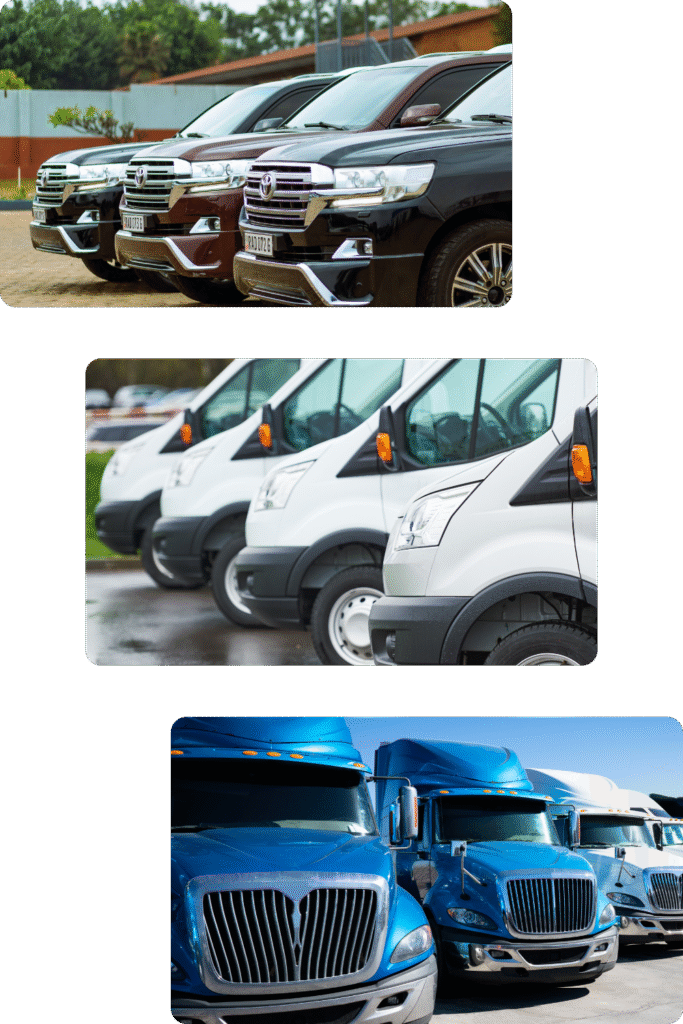Business Insurance
Protection for small businesses
Choose your primary coverage to Learn More
Trusted by Small Businesses Across America
North American Mutual has helped hundreds of local businesses protect what matters most with reliable, personalized insurance solutions.
5-Star Client Satisfaction
25+
Years Combined Experience
1,000+
Businesses Protected
Business Insurance Can:
Protect your Finances
Business insurance protects your company from financial risks, ensures legal compliance, and builds trust with clients. It also safeguards employees and helps your business recover from disruptions.
Protect you Legally
Many states and industries require specific types of insurance, such as workers’ compensation or commercial auto coverage. Having the right policies ensures you’re meeting legal requirements. It also helps you avoid costly fines or legal issues.
Boost Your Credibility
Having business insurance shows clients, vendors, and partners that you’re responsible and reliable. It builds trust and confidence in your operations. In many cases, contracts require proof of insurance before any work can begin.

Business Insurance Informational center
Business insurance helps protect businesses from financial losses due to events such as property damage, lawsuits, injuries, or data breaches. It provides peace of mind by covering costs that could otherwise cripple a company. With the right policies, businesses can comply with legal requirements, build trust with clients, and maintain operations even during setbacks.
Business Owners Policy (BOP)
A Business Owners Policy (BOP) is a comprehensive insurance package tailored specifically for small to medium-sized businesses. It combines essential coverages into a single, cost-effective policy, simplifying the insurance process while offering broad protection. A BOP is particularly popular among retail stores, restaurants, professional offices, and service-based businesses that face moderate risk.
One of the key features of a BOP is Commercial Property Insurance, which helps cover physical assets owned by the business. This includes the building (if owned), office furniture, equipment, and inventory. Whether damage is caused by fire, theft, or certain natural disasters, property insurance ensures that businesses can recover and rebuild without shouldering the full financial burden.
Another core component is General Liability Insurance, which protects the business against claims involving bodily injury, property damage, or personal and advertising injury. For example, if a customer slips and falls on the premises or a product causes harm, this coverage can help cover legal fees, medical expenses, and potential settlements.
Most BOPs also include Business Interruption Insurance, which compensates for lost income and operating expenses if the business is forced to temporarily close due to a covered event—like a fire or storm. This can include rent, payroll, and other ongoing expenses, helping to stabilize the business until normal operations resume.
In addition to these standard protections, many insurers offer optional coverages that can be added to customize a BOP. These may include Equipment Breakdown Coverage, Cyber Liability Insurance, or Employment Practices Liability Insurance, depending on the specific risks a business faces. Overall, a Business Owners Policy offers foundational protection and peace of mind for business owners looking to safeguard their operations.
Business Personal Property Insurance
Business Personal Property (BPP) insurance is a key component of commercial insurance policies that protects the physical assets a business owns, leases, or uses in its daily operations. Unlike real property, which refers to the building itself, business personal property includes movable items such as furniture, equipment, inventory, computers, and supplies. This coverage is essential for businesses of all sizes, as it ensures that the tools and materials critical to operation are protected from unexpected loss or damage.
A typical BPP policy covers damage caused by events like fire, theft, vandalism, and certain natural disasters. For example, if a fire breaks out and destroys office furniture and inventory, business personal property insurance would help cover the cost to repair or replace those items. Without this protection, a business could face significant financial strain trying to replace essential equipment or stock out of pocket.
In addition to items within the building, many policies also offer limited coverage for property that is temporarily off-site or in transit. This is especially valuable for businesses that attend trade shows, deliver goods, or operate in multiple locations. Optional endorsements can also be added to extend protection—for example, coverage for valuable papers and records, electronic data, or leased equipment.
Ultimately, business personal property coverage is vital for maintaining operational continuity after a loss. It provides business owners with peace of mind, knowing their assets are protected and that they can recover quickly from unforeseen events without major disruption. START A QUOTE⮕
Commercial Auto Insurance
Commercial Auto Insurance is designed to protect businesses that own, lease, or operate vehicles as part of their daily operations. Whether your company uses a single car for deliveries or manages an entire fleet of service vans or trucks, this type of insurance provides critical financial protection against the risks associated with driving for business purposes.
The foundation of a commercial auto policy includes liability coverage, which pays for bodily injury or property damage that your business is legally responsible for following an accident. For example, if one of your employees causes a crash while making a delivery, liability coverage can help pay for the other party’s medical expenses and vehicle repairs, as well as legal defense costs if you’re sued.
Other important coverages typically included are collision coverage, which helps pay to repair or replace your vehicle if it’s damaged in an accident, and comprehensive coverage, which protects against non-collision events like theft, vandalism, fire, or natural disasters. Many policies also offer uninsured/underinsured motorist coverage, which helps cover your costs if you’re hit by a driver who has insufficient or no insurance.
Businesses can also customize their policy with optional coverages such as hired and non-owned auto coverage (for vehicles your business uses but doesn’t own), medical payments coverage, and towing and roadside assistance. In short, commercial auto insurance not only protects your vehicles and drivers but also shields your business from potentially devastating financial losses caused by accidents or unexpected events on the road. START A QUOTE⮕

Commercial Bonds
Commercial Bonds, often referred to simply as Surety bonds, are a crucial part of the commercial insurance landscape, especially for businesses that perform contractual work or are legally required to provide financial guarantees. Unlike traditional insurance, bonds are not designed to protect the business itself from loss, but instead to guarantee that the business will fulfill certain obligations to a third party, such as a client, the government, or a court.
One of the most common types is a contract bond, which ensures that a contractor will complete a project according to the terms and conditions of a contract. If the contractor fails to meet their obligations, the bond compensates the project owner for financial loss. Subtypes of contract bonds include bid bonds, performance bonds, and payment bonds, each serving a specific role in the bidding and completion process of construction or service contracts.
Another widely used type is a license and permit bond, which is often required by state or local governments before a business can legally operate. This bond ensures the business complies with all applicable laws and regulations. If the business violates any laws or causes harm through negligence or misconduct, the bond can be used to compensate those affected.
There are also fidelity bonds, which protect businesses against employee dishonesty, such as theft or embezzlement. While technically different from surety bonds, they are often included under the broader category of commercial bonds. Whether required by law or contract, bonds are essential tools that build trust, demonstrate professionalism, and provide financial protection to third parties involved with a business. START A QUOTE⮕
Commercial Flood Insurance
Commercial Flood Insurance is a specialized policy designed to protect businesses from the devastating financial impact of flood damage. Unlike standard commercial property insurance, which typically excludes flood-related events, this coverage specifically addresses water damage caused by natural flooding, such as heavy rain, overflowing rivers, storm surges, snowmelt, or blocked storm drains. For businesses located in high-risk flood zones or areas prone to hurricanes and coastal storms, this type of insurance is not just important, it’s often essential.
Floods can cause extensive damage to a business’s structure, inventory, equipment, and even critical systems like HVAC and electrical. Without commercial flood insurance, these losses would likely be uncovered, leaving business owners to shoulder potentially crippling costs. A flood policy can help cover building repairs, equipment replacement, inventory loss, and debris removal, allowing businesses to recover and reopen more quickly after a disaster.
This insurance is usually offered through the National Flood Insurance Program (NFIP), though some private insurers provide more flexible options, especially for properties that exceed NFIP coverage limits. Coverage typically includes both the building and its contents, but they are often sold separately, meaning business owners need to carefully review their policies to ensure both property and contents are adequately protected.
Even if your business isn’t in a high-risk flood zone, it may still be vulnerable. According to FEMA, over 25% of flood insurance claims come from outside high-risk areas. Investing in commercial flood insurance is a proactive step to safeguarding your business’s financial future in the face of unpredictable weather and climate events. START A QUOTE⮕
Commercial Umbrella Insurance
Commercial Umbrella Insurance is an important safety net for businesses that want extra protection against large liability claims. It provides additional coverage when the limits of your underlying policies—such as general liability, commercial auto, or employer’s liability, have been exhausted. In today’s world of costly lawsuits and high-dollar settlements, a single incident could exceed the limits of your base policy. That’s where a commercial umbrella policy steps in, covering the overage and helping your business avoid out-of-pocket losses or financial instability.
This type of insurance is especially valuable for businesses that interact with the public, operate vehicles, or provide professional services. Whether it’s a major injury claim, property damage, or a legal dispute, umbrella coverage ensures you have the extra cushion to absorb those unexpected, high-cost scenarios. It doesn’t replace your base policies but rather builds on them, giving you higher limits and peace of mind.
It’s common to confuse commercial umbrella insurance with excess liability insurance, but there’s an important difference. Excess liability insurance only extends the limits of a single underlying policy. It adds more coverage to what’s already included but doesn’t expand the scope of that coverage. In contrast, umbrella insurance can apply across multiple policies and may even provide coverage for certain claims not listed in your primary insurance—depending on the policy terms. In short, umbrella insurance is broader and more flexible, while excess liability is more limited and policy-specific.
For many businesses, the smart move is layering in umbrella coverage to guard against high-severity, low-frequency risks. It’s cost-effective and can protect your business reputation, assets, and future when standard coverage simply isn’t enough. START A QUOTE⮕
| Feature | Commercial Umbrella Insurance | Excess Liability Insurance |
|---|---|---|
| Applies to Multiple Policies | ✅ Yes (e.g., general liability, commercial auto) | ❌ No (usually tied to a single policy) |
| Provides Broader Coverage | ✅ Often includes coverage not found in underlying policies | ❌ Follows exact terms of the underlying policy |
| Customizable Across Policy Lines | ✅ Can bridge gaps across various liability policies | ❌ Only increases limits of one specific policy |
| Fills Coverage Gaps | ✅ May fill exclusions not covered by base policy (if included in terms) | ❌ No additional protections beyond what’s in base policy |
| Ideal For | Businesses needing flexible protection across liability types | Businesses that only want to increase the limit of a single policy |
Data breach Insurance
Data Breach Insurance, often referred to as Cyber Liability Insurance, is a specialized policy designed to protect businesses from the financial fallout of a data breach or cyberattack. In today’s digital age, companies of all sizes collect and store sensitive customer information, such as names, addresses, Social Security numbers, credit card details, and medical records. If this data is compromised, whether due to hacking, phishing, employee error, or ransomware, the costs of response and recovery can be overwhelming.
This type of insurance typically covers a wide range of expenses following a breach, including notification costs, credit monitoring services for affected individuals, data recovery, legal fees, and regulatory fines. Some policies may also help with public relations and reputation management, helping restore customer trust after an incident. For businesses that rely heavily on online platforms or digital storage, data breach insurance is not just a safety net, it’s essential risk management.
It’s important to understand that traditional commercial policies like General Liability or Property Insurance usually do not cover cyber-related events. Data breach insurance fills that gap, ensuring your business is protected against one of the most common and costly threats in modern commerce. Whether you’re a retailer storing credit card data, a medical office handling patient records, or a professional services firm with confidential client information, this coverage ensures that if a breach occurs, your business can respond quickly and effectively, without draining your resources or damaging your brand beyond repair. START A QUOTE⮕
E & O Insurance/Professional Libaility
Errors and Omissions Insurance (E&O)—also known as Professional Liability Insurance, is a critical policy for businesses and professionals who provide advice, services, or expertise. This coverage protects against claims of negligence, mistakes, or failure to deliver a promised service. Whether you’re an insurance agent, consultant, financial advisor, or technology provider, even small oversights can lead to significant financial losses for clients and costly lawsuits for you.
E&O Insurance helps cover legal defense costs, settlements, and judgments resulting from professional errors or alleged failures. For example, if a client claims your advice led to a financial loss or a missed detail in a contract caused damages, E&O coverage would step in to handle the resulting liability. Even if the claim is unfounded, the cost of defending your reputation can be substantial this policy ensures those expenses don’t come directly out of your pocket.
Unlike general liability insurance, which covers bodily injury or property damage, E&O specifically addresses financial harm caused by your services or lack thereof. This distinction is crucial: many businesses assume they’re fully protected by general liability, but without E&O, they’re exposed to professional risks. For service-based businesses, especially those offering specialized knowledge or guidance, E&O Insurance is not just helpful it’s essential to long-term protection and credibility.
This type of insurance typically covers a wide range of expenses following a breach, including notification costs, credit monitoring services for affected individuals, data recovery, legal fees, and regulatory fines. Some policies may also help with public relations and reputation management, helping restore customer trust after an incident. For businesses that rely heavily on online platforms or digital storage, data breach insurance is not just a safety net, it’s essential risk management.
It’s important to understand that traditional commercial policies like general liability or property insurance usually do not cover cyber-related events. Data breach insurance fills that gap, ensuring your business is protected against one of the most common and costly threats in modern commerce. Whether you’re a retailer storing credit card data, a medical office handling patient records, or a professional services firm with confidential client information, this coverage ensures that if a breach occurs, your business can respond quickly and effectively, without draining your resources or damaging your brand beyond repair. START A QUOTE⮕
Excess Liability
Excess Liability Insurance is a type of policy designed to provide additional limits of coverage beyond the limits of an existing liability policy, such as general liability, commercial auto liability, or employer’s liability. It serves as a financial safety net, stepping in when a covered claim exceeds the maximum payout of your primary insurance. For example, if your general liability policy covers up to $1 million and you face a $1.5 million claim, an excess liability policy can cover the remaining $500,000—up to its own limit.
This type of policy is ideal for businesses that operate in industries with a high risk of large claims, such as construction, transportation, or manufacturing. It helps protect your company’s assets, reputation, and financial future without the need to purchase much higher limits on each individual underlying policy. However, excess liability policies follow the exact terms and conditions of the policy they are extending, they do not add coverage, only more limit. This makes them straightforward and cost-effective, especially if you’re only concerned with larger claim amounts rather than broader coverage.
It’s important not to confuse excess liability insurance with commercial umbrella insurance, though they appear similar at first glance. Both types increase liability limits, but the key difference lies in flexibility and scope. Umbrella insurance can apply across multiple underlying policies, such as general liability, auto liability, and employer’s liability, and in some cases may even provide coverage where no underlying coverage exists (depending on the policy wording). Excess liability, on the other hand, is limited to one specific underlying policy and cannot expand coverage beyond what that policy already includes.
In short, if your business wants a simple way to raise the limits of a single policy, excess liability may be a smart choice. If you’re looking for broader protection that applies across several policies, and potentially fills certain coverage gaps, a commercial umbrella insurance policy offers more flexibility. Choosing between the two depends on your business’s structure, exposures, and appetite for risk. START A QUOTE⮕
Inland Marine Insurance
Inland Marine Insurance is a specialized form of property insurance designed to cover movable or transportable goods, equipment, and tools—particularly those that aren’t confined to a single fixed location. Despite the name, it has nothing to do with water transport today. The term originated when marine insurance expanded to cover shipments moving across land. Today, inland marine coverage plays a vital role in protecting business property that travels, is in transit, or is temporarily stored off-site.
This insurance is ideal for businesses that regularly transport valuable items, use mobile tools or equipment, or have property located at job sites, warehouses, or temporary storage locations. For example, a construction company might use inland marine insurance to cover tools stored in trucks or at a job site. A tech company might use it to protect high-value equipment they lease or move between locations. It can also be used to cover installation projects, contractor equipment, fine arts, computers, and medical equipment, depending on the business’s needs.
One key advantage of inland marine insurance is its flexibility. It often provides “all-risk” coverage, meaning it insures against a broad range of causes of loss—such as theft, vandalism, fire, or weather damage—unless specifically excluded. This makes it significantly more comprehensive than some standard property policies, which may exclude property once it’s off-site or in transit. Without inland marine coverage, businesses risk gaps in protection when valuable assets leave their main location. START A QUOTE⮕

Liquor Liability
Liquor Liability Insurance is a specialized form of liability coverage designed to protect businesses that sell, serve, or distribute alcohol. It provides financial protection if your business is held responsible for property damage or injuries caused by an intoxicated person who was served alcohol at your establishment. This type of coverage is essential for bars, restaurants, breweries, caterers, liquor stores, and any venue where alcohol is part of the service.
Many states require liquor liability coverage as part of obtaining a liquor license, especially if you’re serving alcohol on-site. Even in states where it’s not mandated, the risk exposure is real, alcohol-related incidents can lead to costly lawsuits. For example, if a customer leaves your establishment intoxicated and causes a car accident or starts a fight, your business could be held liable. Liquor liability insurance helps cover legal defense costs, medical bills, property damage, and settlement expenses arising from these types of claims.
It’s important to note that standard General Liability Policies usually exclude liquor-related incidents, especially if your business is directly involved in the sale or distribution of alcohol. That’s why a separate liquor liability policy, or a liquor endorsement, is often necessary to fill that gap. For any business where alcohol is part of the customer experience, liquor liability isn’t just smart risk management, it’s a critical layer of protection. START A QUOTE⮕

Management Liability Inurance
Management Liability Insurance is a bundled insurance policy designed to protect a business and its executives from a range of risks associated with leadership and decision-making. It typically includes several coverages such as Directors and Officers (D&O) Liability, Employment Practices Liability (EPLI), and Fiduciary Liability. This type of policy is especially important for privately held companies, nonprofits, and publicly traded firms, where executives can be held personally liable for their actions while managing the organization.
At its core, management liability protects against claims related to mismanagement, wrongful termination, discrimination, harassment, and breach of fiduciary duty. For example, if an employee sues for a hostile work environment, or if stakeholders allege that leadership made decisions that caused financial harm, this policy helps cover legal defense costs, settlements, and judgments. In many cases, it also protects the personal assets of company leaders who might otherwise be individually targeted in lawsuits.
Unlike general liability or professional liability insurance, which cover physical harm or service-related claims, management liability focuses on internal, corporate-level risks tied to governance and employment practices. As companies grow and face greater regulatory and legal scrutiny, this type of coverage becomes an essential tool for protecting both the organization and the individuals leading it.
NORTH AMERICAN MUTUAL IS NOT CURRENTLY WRITING MANAGEMENT LIABILITY
Product Liability Insurance
Product Liability Insurance is designed to protect businesses from legal and financial exposure arising from the manufacture, sale, or distribution of products that cause injury or damage. If a product you made, sold, or supplied is found to be defective and results in bodily harm or property damage, your business could be held legally responsible, even if you weren’t the manufacturer. Product liability coverage helps cover legal defense costs, medical expenses, settlements, and judgments related to such claims.
This type of insurance is crucial for manufacturers, wholesalers, retailers, online sellers, and importers. Claims can result from design defects, manufacturing flaws, contamination, inadequate warnings or instructions, and product malfunction. Even if your business only re-labels or distributes a product made elsewhere, you can still be named in a lawsuit and held liable under strict product liability laws in many jurisdictions.
Standard General Liability Insurance usually includes some product liability coverage, but it may not be sufficient for businesses with higher exposure. That’s why many companies choose to supplement it with a standalone or expanded product liability policy. In a marketplace where product recalls, safety standards, and consumer lawsuits are increasingly common, product liability insurance isn’t just an option, it’s a necessity for protecting your brand, your finances, and your long-term business reputation. START A QUOTE⮕
Workers Compensation Insurance
Workers’ Compensation Insurance is a mandatory policy in most states that provides financial and medical benefits to employees who suffer work-related injuries or illnesses. Whether it’s a sudden accident on the job site or a repetitive strain injury developed over time, workers’ comp ensures that employees receive the support they need to recover—without having to pay out-of-pocket. In return, it helps protect employers from being sued by employees for workplace injuries, offering a no-fault system that benefits both parties.
This insurance typically covers medical expenses, rehabilitation costs, a portion of lost wages, and, in severe cases, disability or death benefits. For example, if an employee falls from a ladder or develops carpal tunnel syndrome from repeated motion, workers’ comp would pay for treatment and wage replacement while they recover. It also provides legal protection for the business, as employees generally waive the right to sue their employer in exchange for receiving these guaranteed benefits.
Even if your business seems low-risk or you have only a few employees, workers’ compensation is usually required by state law once you reach a certain number of workers—sometimes even just one. Failing to carry proper coverage can result in hefty fines, lawsuits, or even criminal penalties. More importantly, workers’ comp demonstrates that your business values its employees and is committed to their safety, well-being, and fair treatment in the event of an unfortunate incident. START A QUOTE⮕

See How North American Mutual Can Help You
START A QUOTE ONLINE TODAY OR CONTACT US DIRECTLY FOR IMMIDIATE ASSISTANCE
Legal Disclaimer
The information provided on this website is intended for general informational purposes only and does not constitute legal, financial, or insurance advice. While North American Mutual strives to keep the information accurate and up to date, we make no guarantees regarding the completeness, accuracy, or applicability of any information provided. Insurance policies, coverages, terms, and conditions can vary significantly between carriers, states, and individual business needs. Any examples of coverage are for illustrative purposes only and may not reflect actual policy terms or available options.
Visiting this site or contacting North American Mutual does not create an agent-client or insured relationship. Coverage cannot be bound or altered without confirmation from a licensed insurance representative. All insurance products are subject to underwriting approval, availability, and applicable state and federal regulations.
We recommend that you speak directly with one of our licensed agents to review your specific risks and coverage needs. North American Mutual is not responsible for any actions taken based on the content found on this site, nor for any errors or omissions contained herein. Always consult with a qualified insurance advisor or legal professional for advice tailored to your business situation.


